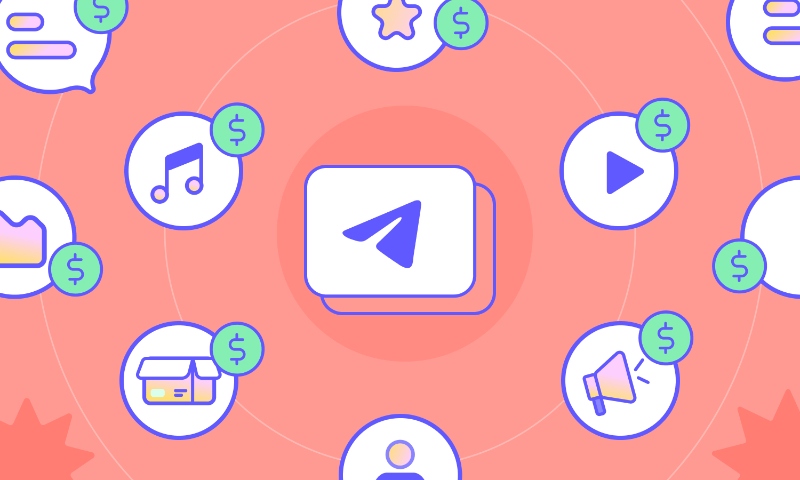
Introduction
In today's rapidly evolving educational landscape, the integration of artificial intelligence (AI) has brought about significant advancements, particularly in the realm of Learning Management Systems (LMS). AI-powered LMS platforms, such as Graphy, have revolutionized the way educators and learners engage with educational content, offering a range of innovative features and capabilities. These advancements have the potential to enhance the teaching and learning experience, promote personalized education, and improve overall educational outcomes. This blog explores 10 inspiring innovations of AI-powered LMS in education, shedding light on the exciting possibilities that AI brings to the future of learning.
Also Read Related Blog: Use ChatGPT for Course Creation to Enhance Your Content and Save Time
Personalized Learning Paths
One of the most inspiring innovations brought by AI-powered Learning Management Systems (LMS) in education is the ability to create personalized learning paths for each learner. Through adaptive learning algorithms, these systems analyze student data to generate individualized learning journeys based on their needs, preferences, and prior knowledge. AI-powered LMS platforms also offer recommendations for relevant content and resources, enriching the learning experience.
Furthermore, Graphy, an advanced AI-powered LMS platform, offers a dedicated feature for personalized learning paths. This empowers course creators to effortlessly engage with their learners and deliver customized instruction, ensuring that learners have access to resources and learning materials that align with their specific needs and preferences.
Intelligent Assessments and Feedback
Intelligent assessments and feedback are revolutionizing the educational landscape through AI-powered Learning Management Systems (LMS). These systems employ automated grading and assessment techniques, enabling instructors to efficiently evaluate student work and provide timely feedback. With the help of AI algorithms, LMS platforms can analyze student responses, identify patterns, and deliver personalized guidance, fostering individual growth and learning. Additionally, the integration of intelligent analytics allows educators to track student progress in real-time, gaining valuable insights into their strengths and areas for improvement.
By harnessing the power of AI, LMS platforms enhance the assessment process, promote personalized learning experiences, and enable educators to make data-driven instructional decisions. Graphy, an innovative LMS solution, incorporates intelligent assessments and feedback features, empowering course creators with efficient grading mechanisms and AI-based guidance to maximize student learning outcomes.
Virtual Assistants and Chatbots
Virtual assistants and chatbots have revolutionized learner support in the field of education, thanks to AI-powered Learning Management Systems (LMS). These systems integrate virtual assistants that provide instant support and assistance to learners. With AI algorithms, virtual assistants can understand and respond to learner queries, offering timely and accurate information. This eliminates the need for manual responses and allows learners to access help whenever they need it.
Furthermore, LMS platforms leverage automated responses to common queries and frequently asked questions (FAQs). Chatbots, powered by AI, can analyze and interpret learner inquiries, providing pre-programmed responses that address common concerns. This not only saves time for both learners and instructors but also ensures consistent and reliable support.
The advanced natural language processing (NLP) capabilities of AI enable conversational interactions between learners and virtual assistants or chatbots. NLP algorithms analyze and understand the context and intent behind learner messages, allowing for more meaningful and engaging interactions. Learners can ask questions, seek clarification, and engage in dialogue with AI-powered chatbots, enhancing their learning experience through personalized and interactive interactions.
Gamification and Engagement
Gamification has emerged as a powerful tool in education, and AI-powered Learning Management Systems (LMS) have taken it to the next level. By incorporating game-based learning elements, LMS platforms make education more engaging and enjoyable for learners. Through interactive quizzes, simulations, and interactive challenges, learners can immerse themselves in the learning process, transforming it into a dynamic and exciting experience.
AI-powered LMS platformsAI-driven gamification strategies further enhance learner motivation and reward systems. With the help of AI algorithms, LMS platforms can analyze learner behaviour, preferences, and performance to tailor gamification elements specifically to individual learners. This personalized approach increases learner engagement and encourages them to actively participate in their learning journey. Additionally, leaderboards, badges, and challenges create a competitive learning environment, spurring learners to achieve their goals and excel in their studies.
Struggling with your course outline? Why not try Graphy's AI?
Virtual Reality (VR) and Augmented Reality (AR) Integration
AI-powered LMS platforms have embraced the potential of Virtual Reality (VR) and Augmented Reality (AR) to revolutionize the learning experience. VR technology creates immersive virtual environments where learners can explore, interact, and experience educational content in a highly engaging and realistic way. Whether it's visiting historical sites, exploring outer space, or dissecting virtual organisms, VR opens up new possibilities for experiential learning.
On the other hand, AR enhances learning by overlaying digital information onto the real world, enabling learners to interact with virtual objects and data in a physical environment. This integration allows for practical training, such as conducting virtual experiments, assembling complex machinery, or practicing medical procedures. By providing hands-on experiences, AR bridges the gap between theory and practice, fostering deeper understanding and mastery of subjects.
Data Analytics for Insights
In the era of AI-powered Learning Management Systems (LMS), data analytics plays a crucial role in providing valuable insights into learners' progress, preferences, and learning patterns. AI-driven analytics tools enable course creators and educators to gain a comprehensive understanding of student performance and engagement. By analyzing vast amounts of learning data, such as quiz scores, completion rates, and time spent on activities, AI algorithms can identify patterns and trends that help optimize instructional strategies.
With AI-powered analytics, educators can go beyond traditional assessments and gain real-time insights into each learner's progress. These analytics tools can identify areas of strength and weakness, allowing for targeted interventions and personalized recommendations. For example, if an AI algorithm detects that a learner is struggling with a specific concept, it can recommend additional resources or adaptive learning activities tailored to address their individual needs. Predictive analytics also play a vital role in early intervention, identifying students at risk of falling behind and providing timely support to ensure their success.
Natural Language Processing
Natural Language Processing (NLP) is a cutting-edge innovation in AI-powered Learning Management Systems (LMS) that revolutionizes the way learners interact with educational content. NLP algorithms enable intelligent content understanding, making it possible for LMS platforms to comprehend and interpret text-based materials. This opens up new possibilities for learners to engage with course content more effectively. NLP algorithms can analyze and extract meaning from textual information, enabling automated summarization, sentiment analysis, and concept mapping, among other capabilities. With NLP, learners can receive more targeted and relevant content recommendations based on their interests and learning goals.
Moreover, NLP facilitates language translation, breaking down barriers in multilingual learning environments. AI-powered LMS platforms can automatically translate course materials, instructions, and assessments into different languages, ensuring accessibility and inclusivity for a diverse group of learners. This feature allows learners from various linguistic backgrounds to access educational content and participate in the learning process with ease.
Additionally, speech recognition technology powered by NLP enables voice-enabled interactions in AI-powered LMS. Learners can engage in voice-based conversations with virtual assistants or interactive chatbots, posing questions, seeking clarification, or initiating discussions. This not only enhances the learner experience but also promotes accessibility for learners with visual impairments or those who prefer verbal interactions.
Content Creation and Curation
Content creation and curation are vital aspects of AI-powered Learning Management Systems (LMS) that enhance the learning experience for students. With the advancements in AI technology, LMS platforms can generate high-quality learning resources through AI-generated content creation. AI algorithms can generate text, video, and audio-based content, such as interactive lessons, quizzes, and simulations, tailored to specific learning objectives and topics. This automated content creation process saves time for educators and ensures a diverse range of resources for learners.
Graphy's AI-powered LMS platform revolutionizes the course creation process by offering a comprehensive suite of tools and features to develop engaging and effective courses across various domains. With Graphy, course creators can easily generate a descriptive course outline, including a detailed description, metatags, key highlights, and modules, with just the title of their course. This innovative approach streamlines the course creation process, saving time and effort for educators.
Graphy's AI algorithms analyze the course title and generate a well-structured course outline, ensuring that all essential aspects are covered. The platform provides a user-friendly interface where course creators can customize and fine-tune the outline according to their specific requirements. This AI-powered course outline serves as the foundation for building a comprehensive curriculum that meets the learning objectives and engages the target audience effectively.
Must Read Related Blog: ChatGPT for Course Creators [A Comprehensive Guide to Get Started]
Adaptive Learning Algorithms
Adaptive learning algorithms are a key innovation in AI-powered Learning Management Systems (LMS) that revolutionize the way learners engage with educational content. These dynamic algorithms analyze individual learner data, including performance, preferences, and progress, to tailor the learning experience to each learner's unique needs. By continuously assessing and adjusting learning paths, adaptive learning algorithms ensure that learners receive personalized instruction and content that aligns with their specific learning styles and abilities.
Additionally, AI-based recommendation systems enhance the learning experience by suggesting relevant resources, activities, and assessments that cater to learners' interests and areas of improvement. This personalized approach to education maximizes learner engagement and promotes better retention of knowledge and skills, ultimately leading to more effective learning outcomes. The integration of adaptive learning algorithms in AI-powered LMS platforms like Graphy enhances the learner experience, fostering individualized instruction and facilitating meaningful and personalized learning journeys for every learner.
Struggling with your course outline? Why not try Graphy's AI?
Collaboration and Social Learning
Collaboration and social learning are vital components of modern education, and AI-powered Learning Management Systems (LMS)have brought innovative solutions to facilitate these aspects. AI-powered social learning platforms create dynamic spaces where learners can interact, share ideas, and collaborate on projects. These platforms utilize AI algorithms to facilitate effective communication, resource sharing, and group collaboration, enabling learners to work together seamlessly.
One of the key features of AI-powered social learning platforms is the intelligent grouping and matching of learners for teamwork. AI algorithms analyze various factors such as learner profiles, skills, interests, and learning goals to create balanced and effective teams. This ensures that learners can collaborate with peers who complement their strengths and provide a diverse range of perspectives, enhancing the quality of their collaborative work.
Related Blog: ChatGPT vs. Human Content Creation for Course Creators: Which is Better?
Conclusion
In conclusion, the integration of AI-powered technologies in Learning Management Systems (LMS) has revolutionized the field of education. The innovations discussed in this blog highlight the diverse range of benefits AI brings to teaching and learning. From personalized learning paths and intelligent assessments to gamification, data analytics, and social learning, AI-powered LMS platforms offer a wealth of opportunities to create engaging, effective, and student-centric learning experiences.
As educators and institutions, it is essential to embrace these advancements and leverage AI-powered LMS to transform education. By adopting these innovative tools, we can personalize instruction, provide timely feedback, analyze learning data for insights, foster collaboration and social learning, and ultimately enhance the overall educational experience for learners.
Graphy, with its seamless integration of AI-powered features, provides an exceptional platform for educators to create, deliver, and manage their courses. Whether you're an expert in a specific domain or an educational institution, Graphy empowers you to easily design a descriptive course outline, provide detailed course descriptions, optimize meta tags, highlight key course modules, and more. With its user-friendly interface and powerful AI capabilities, Graphy simplifies the course creation process, allowing educators to focus on delivering high-quality content and engaging their learners effectively.
Don't miss out on the transformative potential of AI-powered LMS. Explore the possibilities, embrace the future of education, and join the growing community of educators who are leveraging AI to revolutionize teaching and learning. Experience the power of Graphy and unlock new opportunities for educational excellence.









